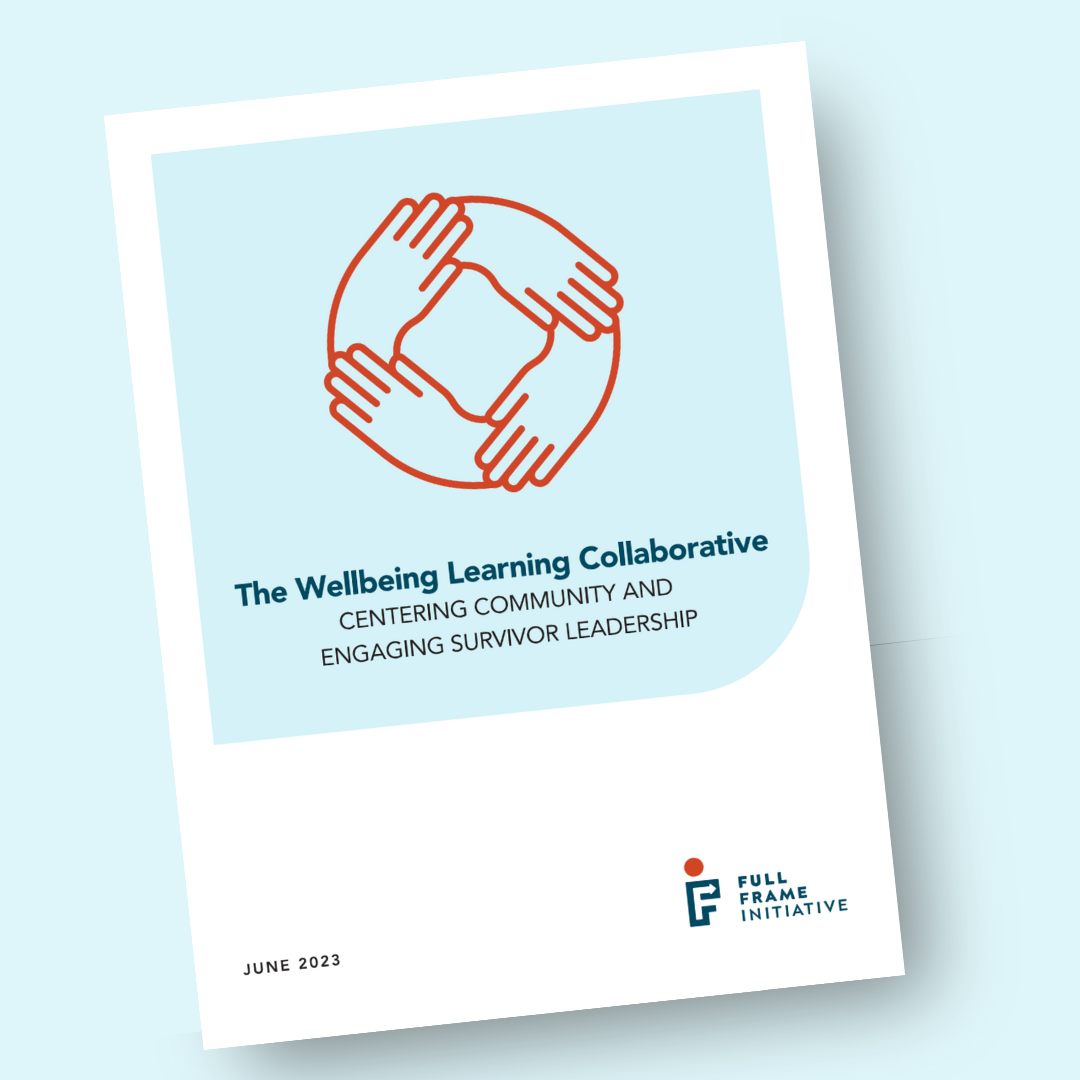
A group of organizations working in domestic violence in Massachusetts contributed to this report on centering community and engagement survivor leadership as a way to support access to wellbeing.
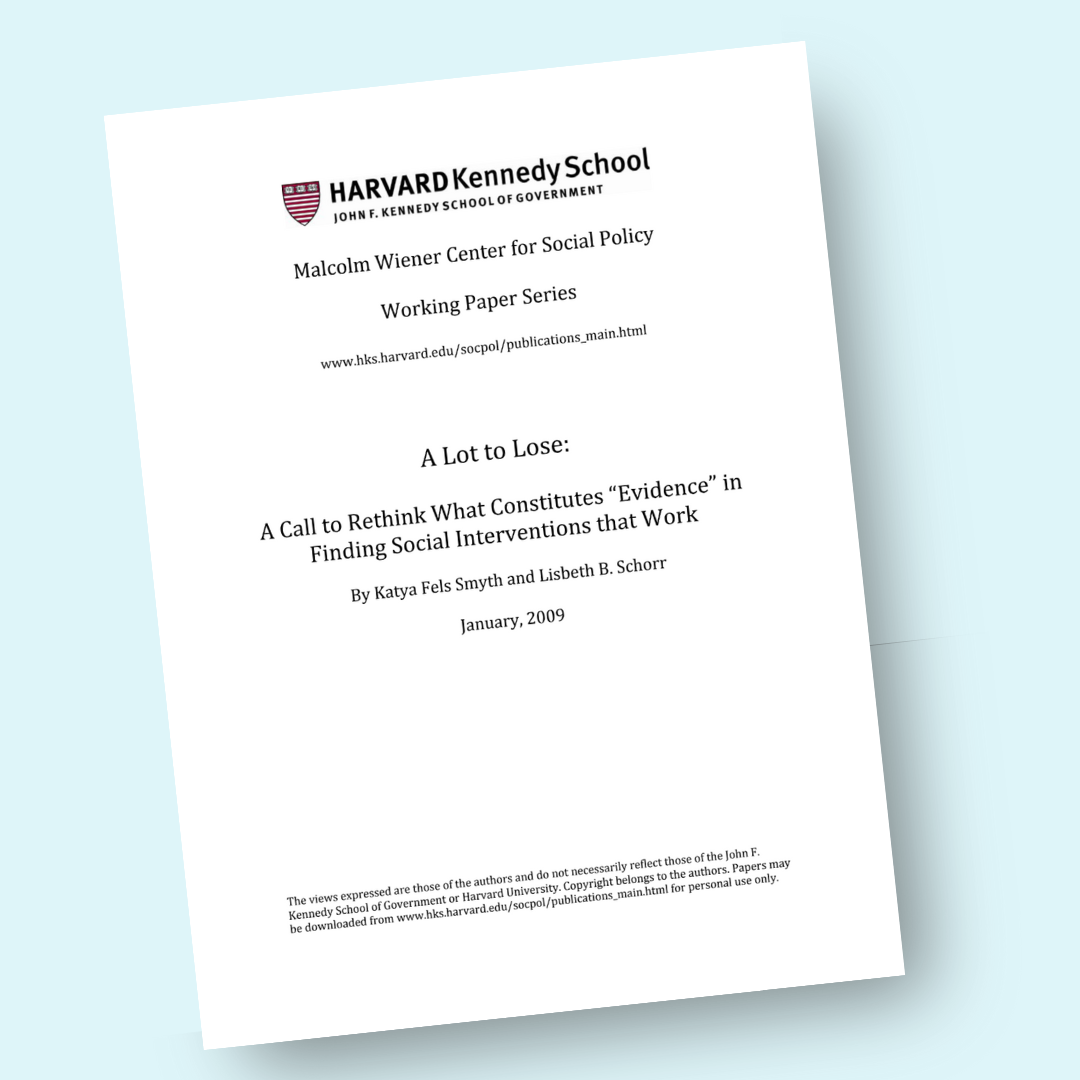
This working paper critiques the over-reliance on evidence-based models in social policy and presents alternative approaches to avoid potential harm.

This document shares the findings of a pilot study to better understand men who use violence in intimate partner relationships.
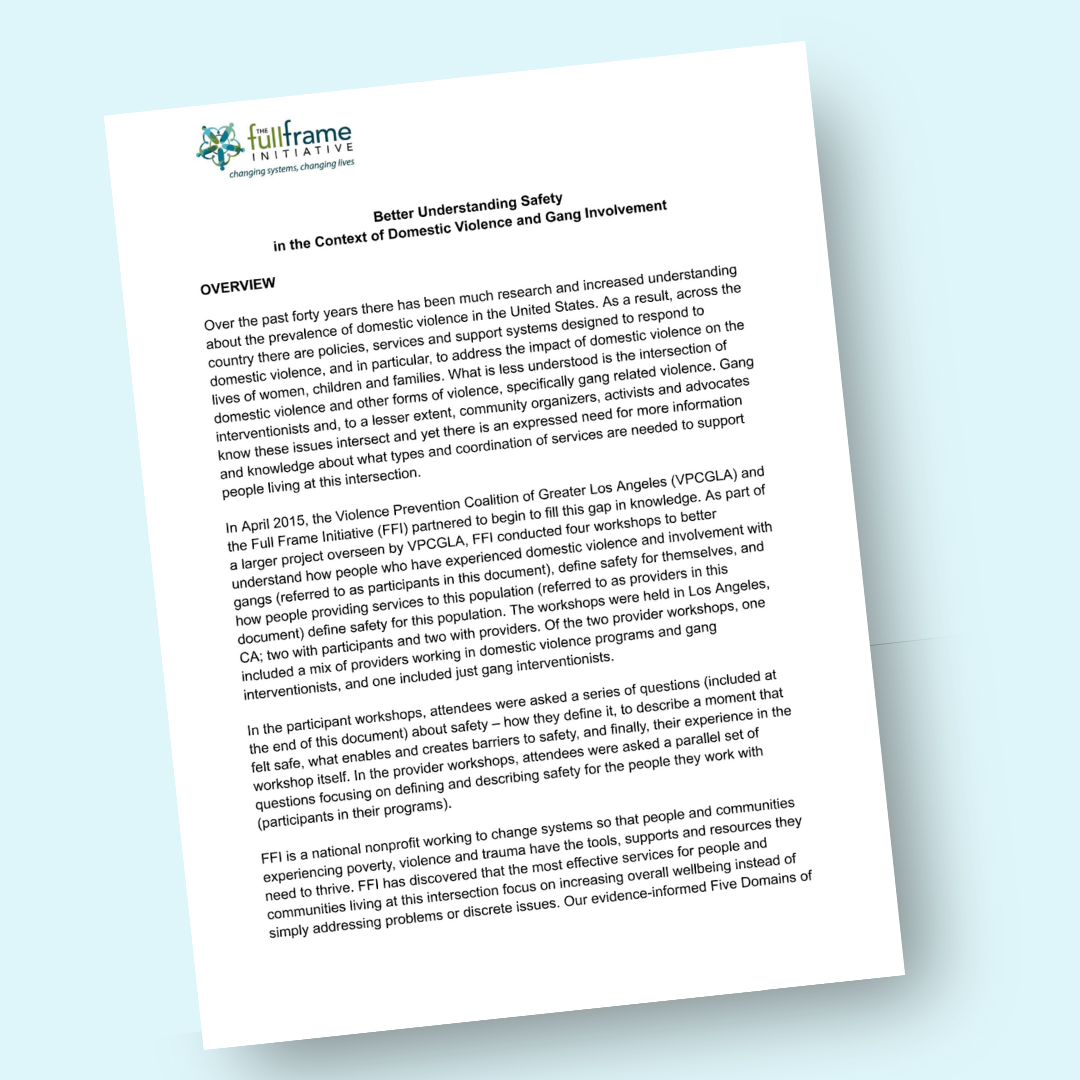
This document summarizes the results of workshops that helped understand the intersection of domestic violence and gang-related violence.
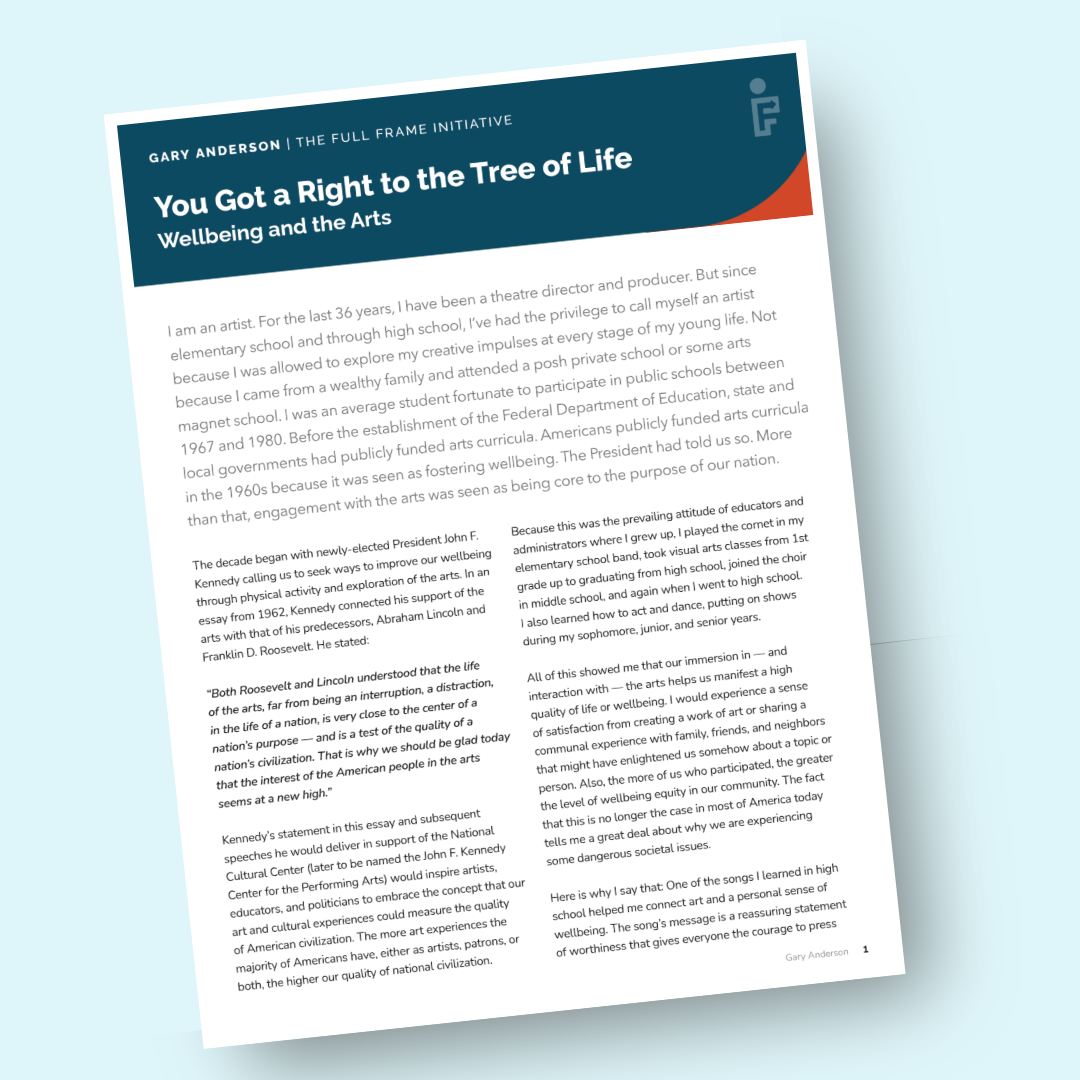
FFI Senior Fellow Gary Anderson, a theater director and producer with over 36 years of experience, makes a compelling case for centering the arts as a pathway to wellbeing and democracy.
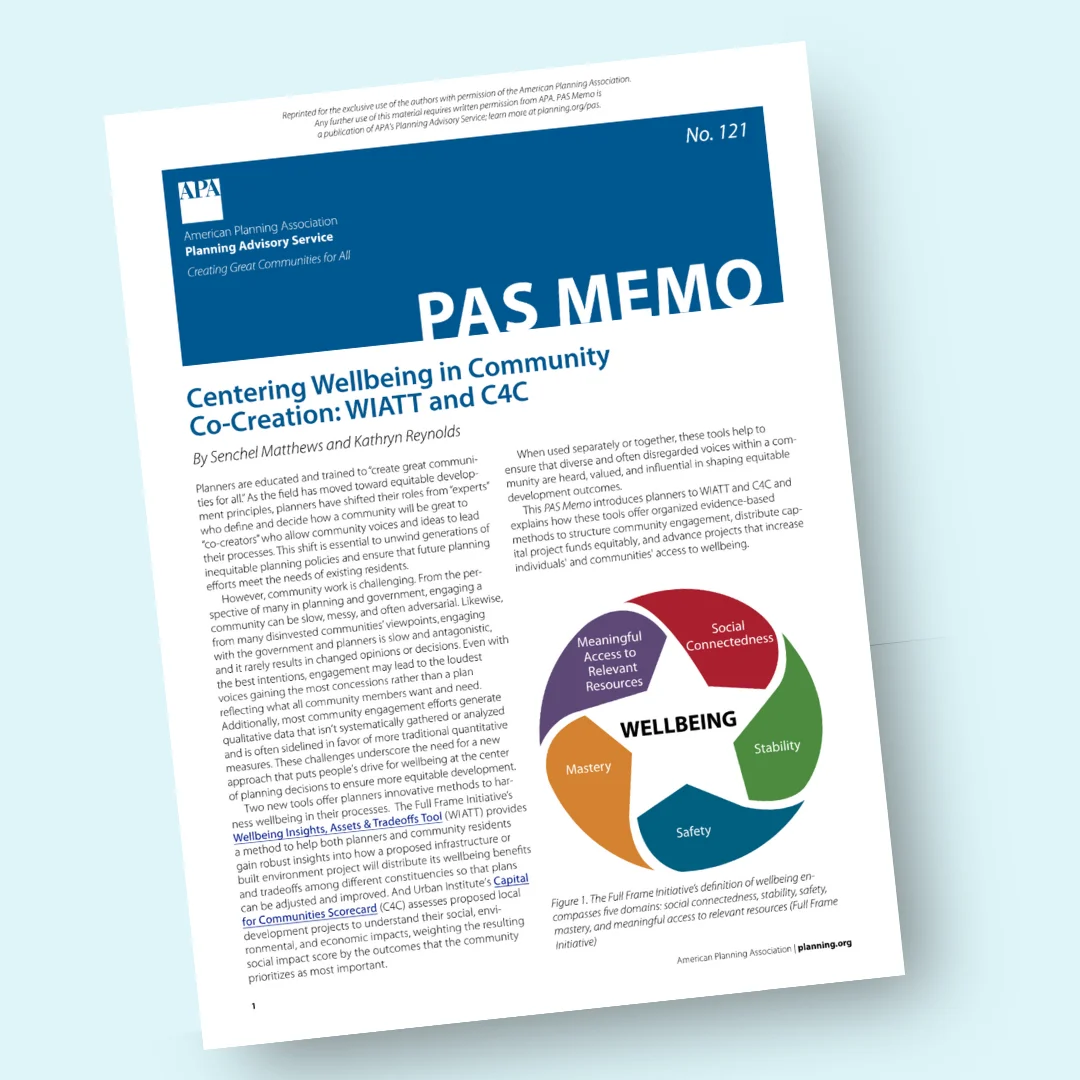
This memo was produced for the American Planning Association that provided insights on two tools to embed wellbeing equity and community co-creation in the planning field – FFI's Wellbeing Insights, Assets & Tradeoffs Tool (WIATT) and Urban Institute’s Capital for Communities Scorecard (C4C).

Mayor Michael Passero writes about the impact of the city of New London's partnership with FFI. Together, we're shifting how leaders and residents see their roles in building a city where everyone has a fair shot at wellbeing.
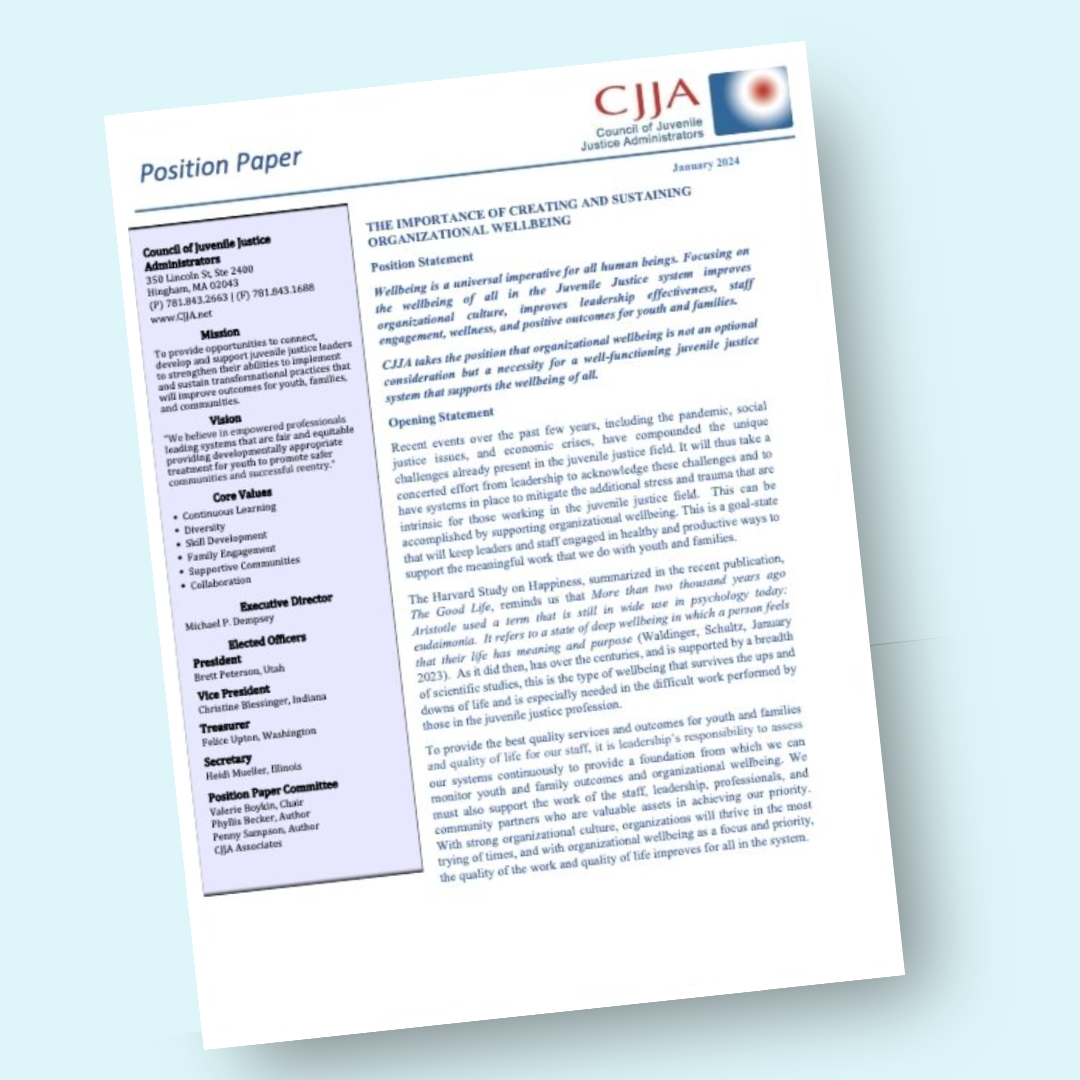
The Council for Juvenile Justice Administrators published a position paper with guidance on how to apply a wellbeing framework to juvenile justice.
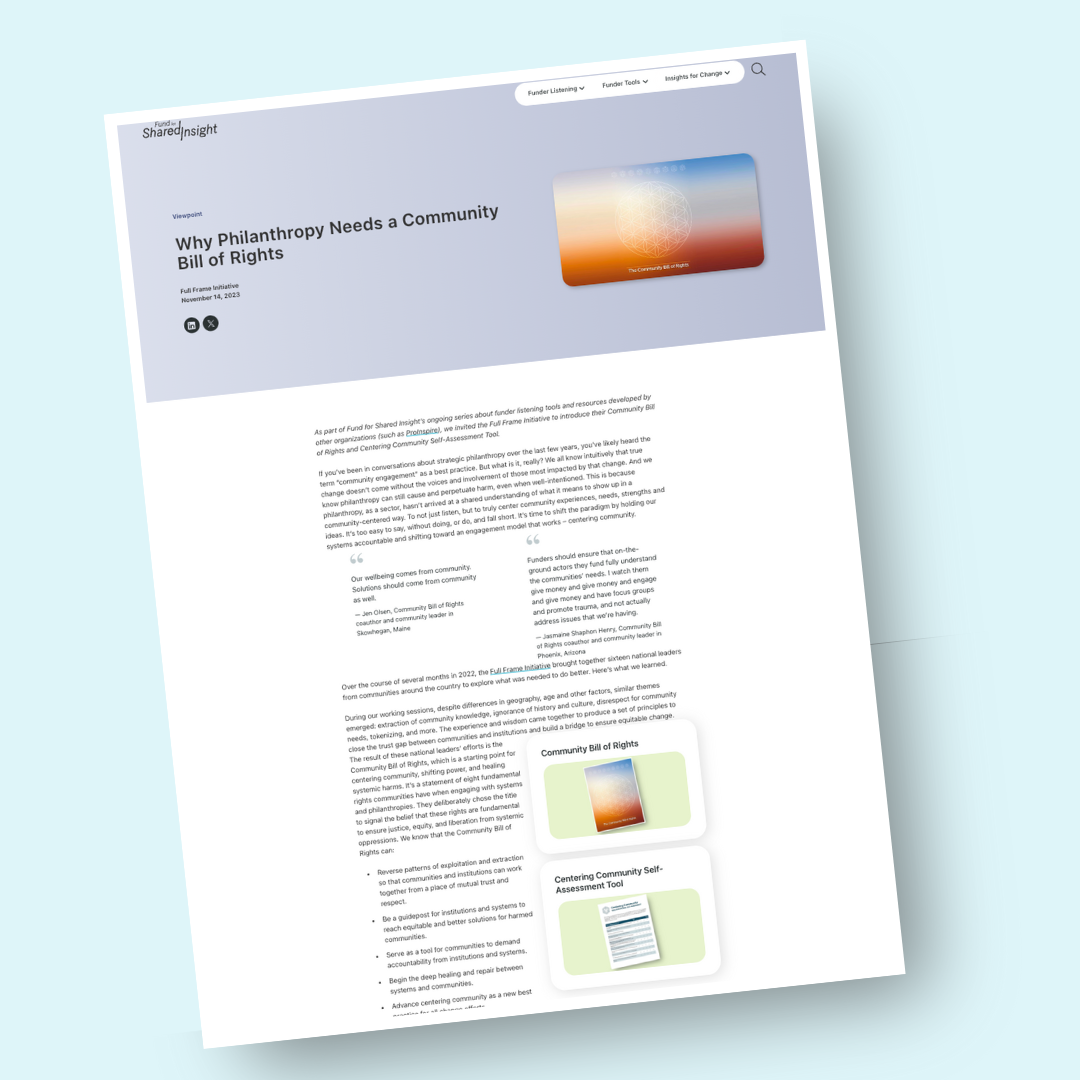
The Fund for Shared Insight invited the Full Frame Initiative to share the Community Bill of Rights and Centering Community Self-Assessment Tool as integral resources for philanthropic organizations.
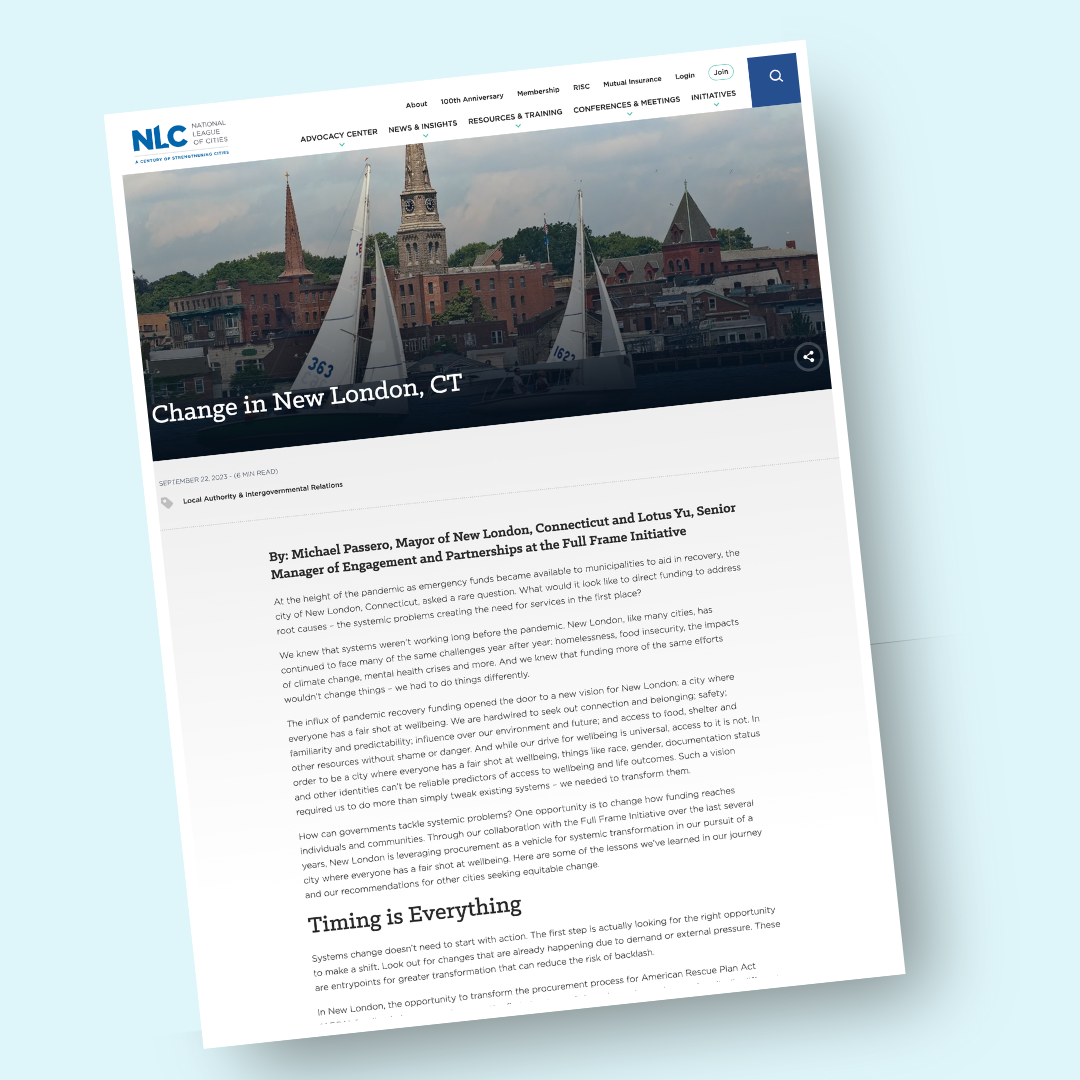
Michael Passero, Mayor of New London, Connecticut and Lotus Yu, Senior Manager of Engagement and Partnerships at the Full Frame Initiative share how the City of New London leveraged the government procurement process to distribute funds for transformative change that centers wellbeing and equity.
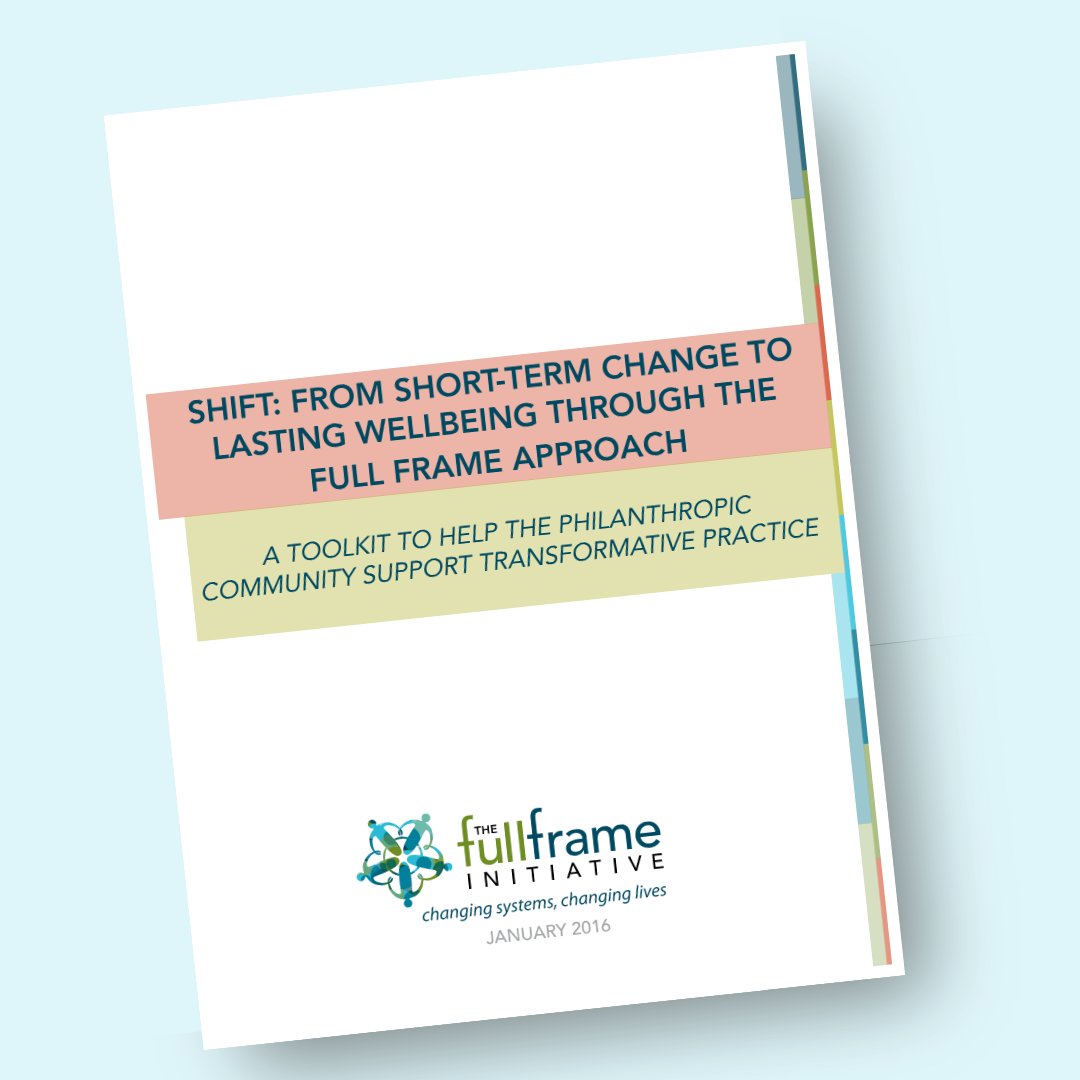
This toolkit provides guidance for the philanthropic community and other stakeholders interested in supporting long-term, sustainable change for people living at the intersection of poverty, violence, trauma and oppression.
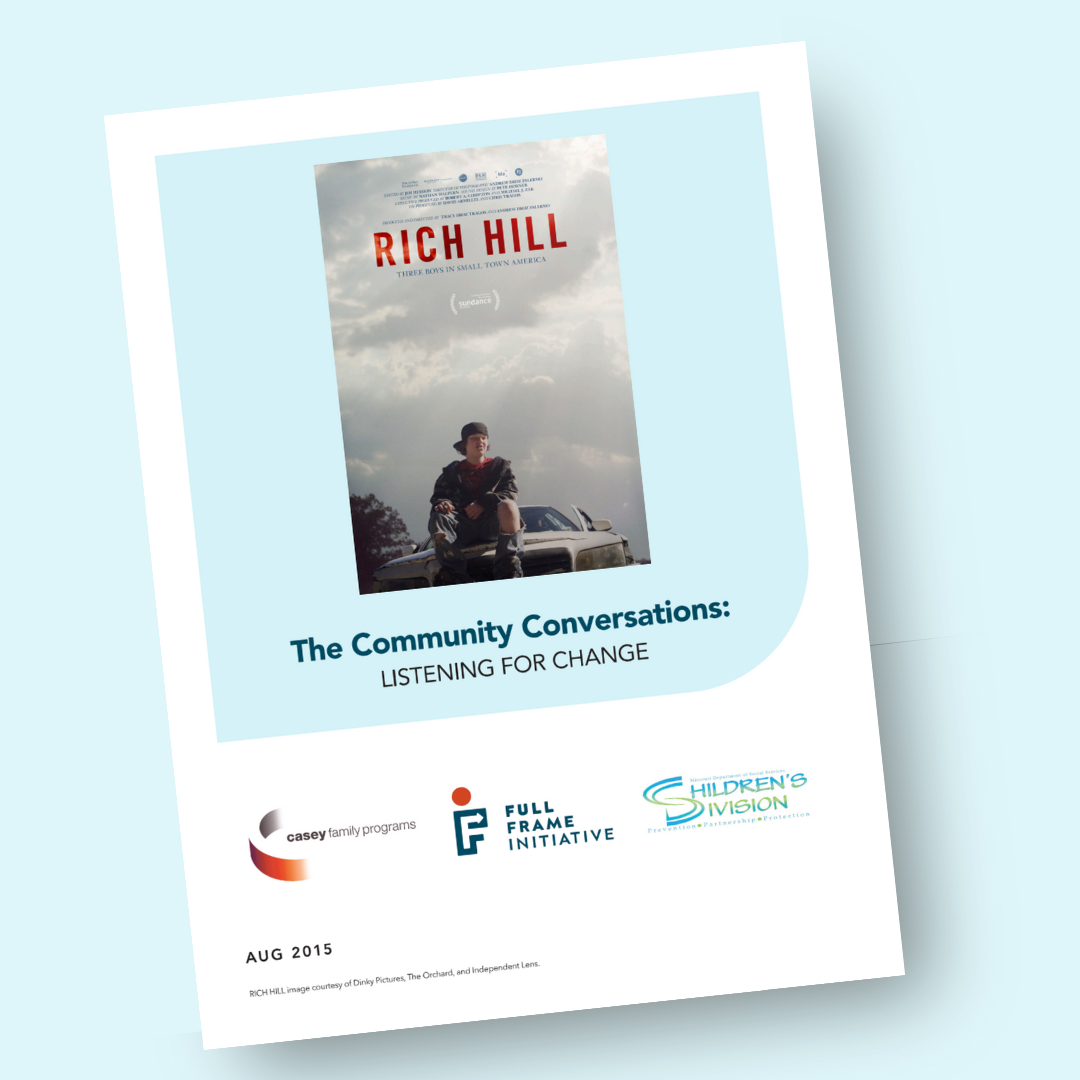
Learn what we heard through community conversations across Missouri and how it led to a paradigm-shifting approach to transforming the state's child welfare system.